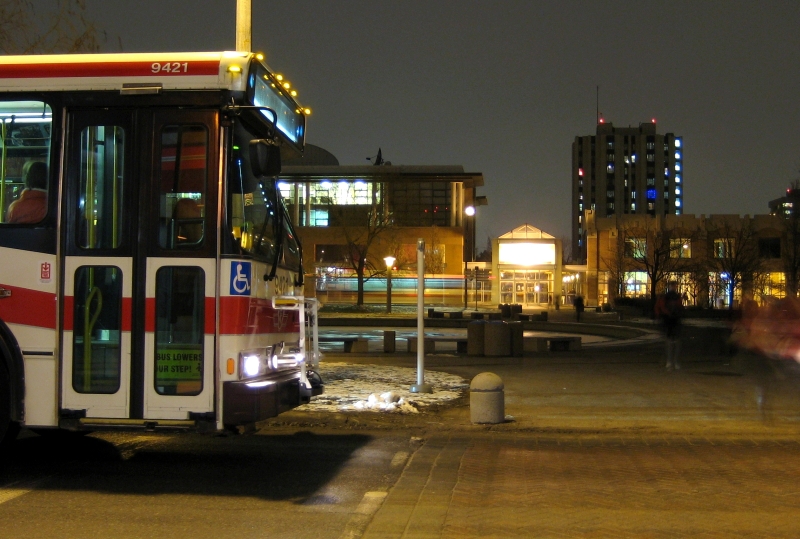Abdeali Saherwala | Staff Writer
Featured Image: Plenty of post-secondary institutions, such as U of T, OCAD, Ryerson, and George Brown, have partnered together to gauge interest in an affordable transit pass. | Courtesy of Wikimedia Commons
Student unions across Toronto are working on a deal to provide affordable bus passes to their students.
Plenty of post-secondary institutions, such as U of T, OCAD, Ryerson, and George Brown, have partnered together to gauge potential interest in an affordable transit pass, titled “U-Commute.”
This initiative would allow an affordable and unlimited monthly bus pass from the TTC. The cost of this pass would be included in each student’s tuition fees—however, this initiative doesn’t include York, which has not yet decided to get involved.
Many students felt that the price for the pass, which at the time was $60 per month, was too high. Others felt that the mandatory fee was unfair to students who drive, walk, or bike to their respective universities. The cost per month can be especially burdensome for students who reside close to their university or in student residences, as they are already paying to live close to their school. Part of the problem of not having this plan finalized may have been that multiple student unions are still not all equally on board with this plan.
Subsidized transit passes and the U-Commute initiative aren’t new to Ontario universities. Universities such as McMaster, Carleton, the University of Ottawa, and University of Toronto at Mississauga already have transit passes included in their tuition costs. The University of Ontario’s Institute of Technology and Durham College have transit passes included in their tuition, giving students unlimited use of the Durham Region Transit and GO Transit bus routes within the Durham Region.
The subsidization of transportation to universities increases profits and ridership for transit systems, as everyone is pooling in to make transportation more cost-efficient.
“Increasing ridership—and in turn, fare revenue—is one of the TTC’s main goals,” said Arthur Borkwood, head of customer development at the TTC, to The Varsity, U of T’s student newspaper.
“Based on experience elsewhere, a U-Pass can increase ridership by 20 per cent.”
When asked how a U-Pass could be detrimental to the TTC, Borkwood explained that “the only real downside would be potential for lost revenue, but that would be balanced by an increase in ridership.”
According to U of T Student Union Vice-President External Anne Boucher, “the U-Pass is the key to the city—sure, it could get you to class, but it would allow you to explore every corner of the city—fun restaurants, cool spots, beautiful trails, or your friend’s house on the opposite end of Toronto. Getting to these once-inaccessible places suddenly becomes a lot easier.”
York’s lack of participation in this initiative of subsidizing transportation is detrimental to its commuting students, who make up a large portion of its student body. About 55 per cent of students use the TTC to commute to the Keele campus, and 59 per cent of students also use it to get to the Glendon campus.
With these figures at hand, it would be beneficial for YFS and York’s administration to become involved in this initiative. According to Janice Walls of York Media, “it appears the U-Commute idea is a student-led initiative at Toronto universities. York’s administration has not been approached to discuss or participate in U-Commute with YFS.”
If the U-Commute card is a student-led effort, then it’s up to the student body to decide if YFS should join this initiative, and to provide solutions for arising problems. In the end, this initiative would be beneficial to York, because York has—and probably will—remain a university wherein the majority of its students commute.


